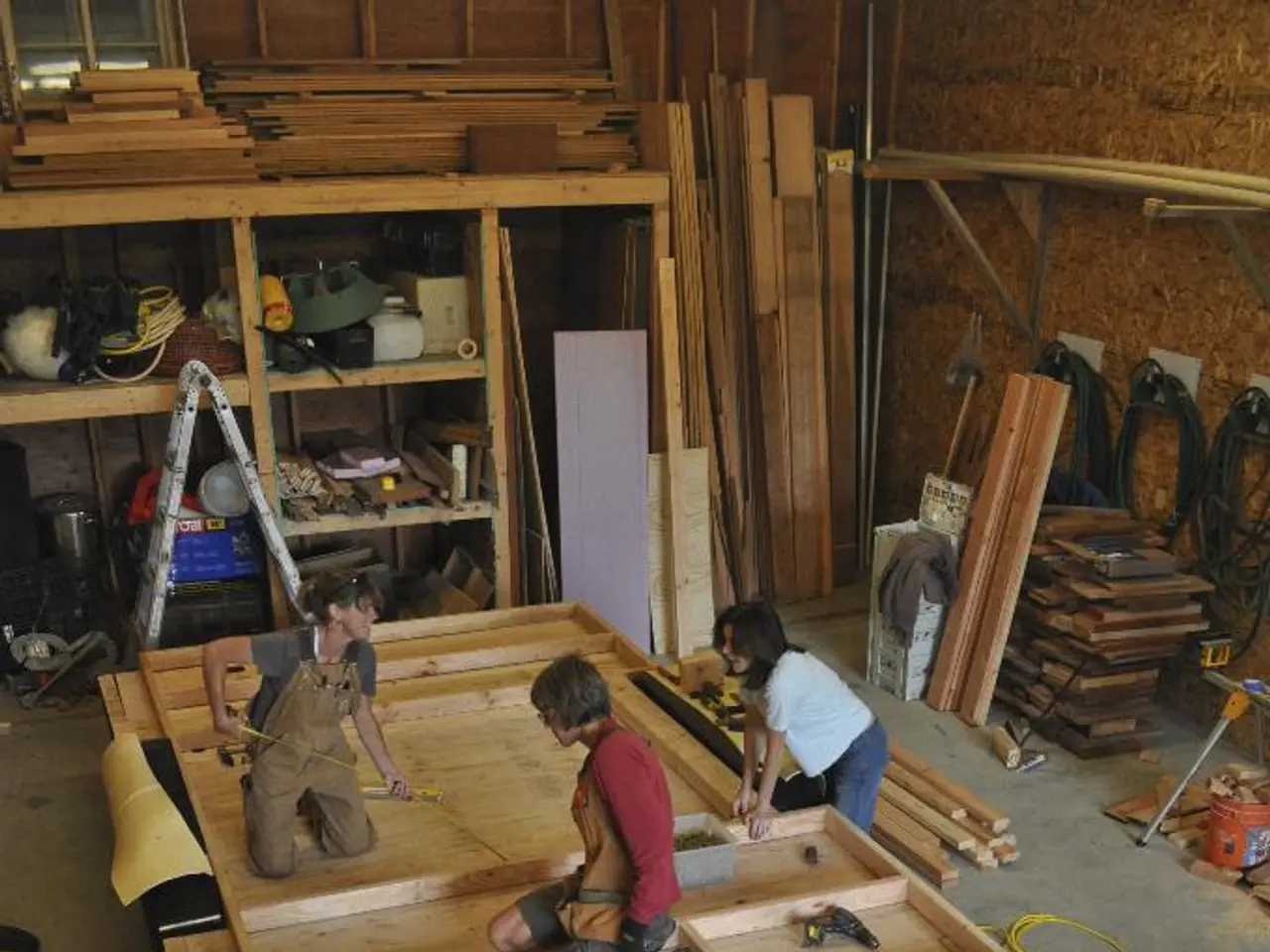Assessing construction projects: The financial benefits for construction professionals
The Importance of a Geotechnical Report Before Building a House
Before embarking on the journey of buying and building a house, it's essential to commission a geotechnical report. This report offers valuable insights into the soil conditions of the specific property, ensuring the structural integrity and longevity of your future home.
Ideally, a geotechnical report should be commissioned before planning the floor slab or cellar. However, even if it's done later, it remains a crucial step in the process. Soil conditions can have significant effects on the stability of a building, and without an individual examination, homeowners risk unexpected additional costs.
Public soil maps and reports from nearby sites provide only general information about soil types and conditions on a broader scale. However, soil properties can vary significantly even within short distances on neighboring plots. A site-specific geotechnical report assesses critical factors such as soil reactivity, stability, chemical composition, and physical conditions unique to your site, which directly influence foundation design, footing types, and construction methods.
The on-site investigations for a geotechnical report typically take a few hours. The exact cost depends on the specific services required and regional conditions, with costs varying between 1,000 and 2,500 euros. Optional services such as infiltration tests can lead to higher costs.
Geotechnical investigations involve drillings at least two diagonally opposite corners at a depth of five to six meters below the planned foundation level. Three points in the area of the later structure are examined by dynamic probing or dynamic cone penetration tests. In recent years, the examination of soil samples for geogenic or anthropogenic contamination has been added to geotechnical reports. Investigations into the water situation in the soil are necessary to define the minimum requirements for moisture protection measures.
A geotechnical report includes recommendations for the execution of foundations or base plates, as well as possible soil improvement measures. It may also point out potential risks, such as settlements or high groundwater levels. The laboratory analyses and preparation of the written report take about two to four weeks.
Experts recommend commissioning a geotechnical report for a house, as public maps and neighboring reports only provide general indications. The report provides precise information about the soil conditions, including soil layers, bearing capacity, and groundwater level. Contact persons for a geotechnical report can be found via the chamber of engineers of the respective federal state.
In summary, a geotechnical report is a necessary step to ensure the structural integrity and longevity of your house. By providing detailed, site-specific soil analysis, it directly influences foundation design and stability, preventing potential problems like settlements, uneven subsidence, cracks in the walls and foundation, damp cellars, and irreparable damage.
Technology plays a crucial role in the execution of geotechnical reports, as advanced tools and techniques such as dynamic cone penetration tests, infiltration tests, and soil sample analyses are employed for thorough soil investigation. The findings from these tests contribute significantly to education-and-self-development, helping homeowners make informed decisions about their property and construction projects.
Furthermore, general news outlets often cover the importance of geotechnical reports in building houses, highlighting the potential risks and financial implications involved in overlooked soil conditions. These reports underscore the need for proper geotechnical examinations before embarking on construction projects, ensuring future homeowners' safety and peace of mind.




